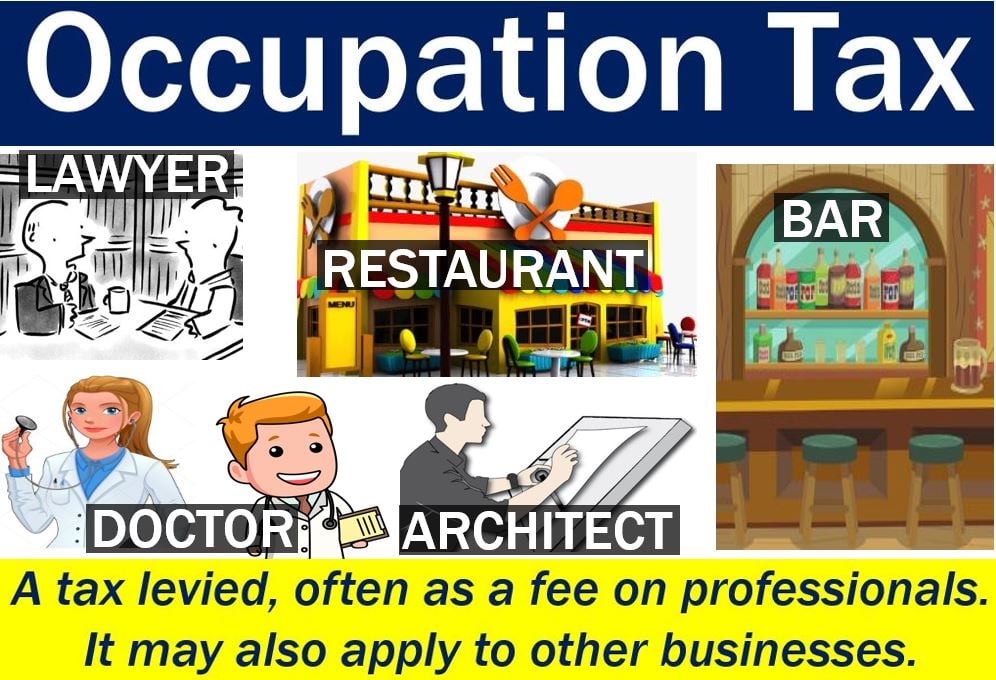Occupation tax – definition and meaning
Occupation tax is a tax the government imposes on certain trades and professions. It is usually a set amount the government levies, typically as a license fee, on doctors, lawyers, and other professionals. However, sometimes it may be a proportion of gross income.
The providers of the services pay the occupation tax, rather than the clients.
Business and occupation tax
In the United States, professionals pay occupation tax to the state or local government.
The US states of Washington, West Virginia, and Ohio call it business and occupation tax or B & O tax.
Some jurisdictions class business and occupation taxes according to sectors, such as wholesaling, services, retailing, or manufacturing. Within each sector, the tax rate is the same. However, it may vary among classes.
In some parts of the world, this tax also refers to taxes and fees some businesses must pay. For example, it might be the fee for a liquor license for a nightclub, bar, or restaurant.
In other words, the term refers to local taxes that professionals, service providers, and other businesses pay.

Regarding occupational tax, USLegal.com writes:
“The power to levy occupation tax is derived is from the police power of the state to regulate its citizen’s.”
State and local governments impose the tax for the privilege of practicing a profession, trade, or running a business.
Occupation tax – example
In the City of Lincoln, Nebraska, there is a restaurant occupation tax. Anybody who operates a drinking establishment or restaurant must pay this tax.
The rate is two percent of all gross receipts for each calendar month.
According to the City of Lincoln: contributors have to pay a percentage of their gross receipts. In other words, a percentage of their sales.
Sometimes, how local governments collect this type of tax changes. For example, in the city of Roswell, Georgia, the authorities used to collect the tax according to the number of workers.
In 2018, however, the city started taxing businesses using a method based on gross receipts.
The Impact of Occupation Tax on Business Growth
Occupation taxes, while essential for local governance, can sometimes be viewed with trepidation by business owners.
Such taxes, especially if they increase abruptly, can impact the growth trajectory of businesses, particularly small and medium enterprises (SMEs). New businesses, which are already grappling with initial costs, might find it challenging to pay an additional fee.
This can sometimes discourage entrepreneurs from starting new ventures in regions with higher occupation taxes.
Furthermore, the intricacies and variances in occupation tax regulations across different jurisdictions can complicate the compliance process. Business owners must stay well-informed to ensure they are not only complying with local tax regulations but also not paying more than what is due.
This need for constant vigilance can divert their focus from core business activities. It is vital for governments to maintain a balance, i.e., levy occupation taxes to fund state necessities while ensuring they do not stifle business growth and innovation.

